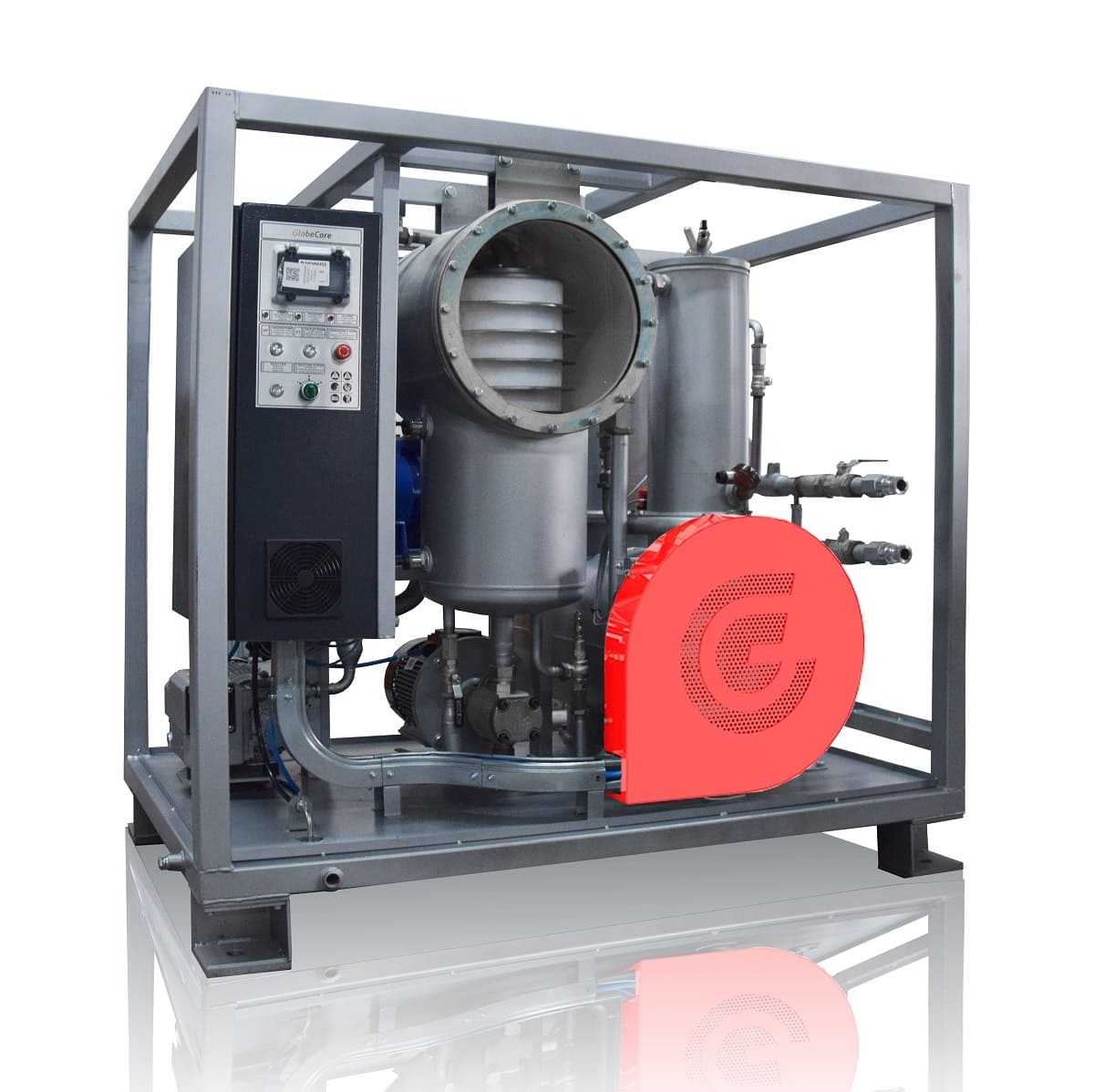Usual guaranteed transformer oil lifetime is 6-8 years. In most cases, the service life before reclamation of changing the oil is over 10 years. Careful operation extends the lifetime of the oil to 20-25 years, and even 30 years for well purified oil in transformers with regular expansion tanks. Incorrect use may reduce the service life of the oil to below its warranty period.
For the first 6-8 years, the acidity of the oil is usually below 0.1 mg KOH/g, as long as the oil is protected from moisture (by correct application of silica gel cartridges). It usually grows to 0.5 in 8-10 years. It is a good idea to purify the oil and remove sludge from the transformer. If this is not done, the acid number reaches 1 mg within the next 2-3 years. As soon as the acid number reaches 1 mg, the oil must be changed.
Oil oxidation is accelerated when it comes into contact with free air at high temperature and with moisture in the oil. Copper, lead and other metals used in the core of the transformer, catalyze oxidation. In transformers where oil is protected from contact with the air, acidity grows much slower than in free-breathing transformers. All copper parts in the transformer must be tin-plated and coated. The tank and other metal parts must be coated with varnish. Moisture is transformer oil’s number one enemy. All measures must be taken to protect oil from water.
Oil purity and its influence
Theory and experiments explain most processes in the aging oil, as well as breakdowns. Even in the strength of electric field below 1 kV/mm, the oil may decay quite rapidly. If the commissioned oil has high dielectric strength, subsequent use decreases it with time. Even a small amount of impurities is enough to make a noticable difference.
The sizes of foreign particles in extremely pure oil do not exceed the size of the oil’s hydrocarbon molecules by much. If the oil is free from fibers, air, acids, soaps, resins and water, the electric strength may reach as high as 150 kV/mm). Rapid coagulation of impurities makes achieving electric strength above 20 kV/mm practically impossible.
Most oils in the market has 10-20 kV/mm electrical strength. If slow coagulation occurs due to the presence of acids, soaps and resins, it drops below 10-20 kV/mm. Aging of oil aggravates this process.
The electric field in the insulation must be as uniform as possible. Much damage can be prevented by smoothing out insulation and electrodes; such concentrations of the electric field attracts cellulose fibers and moisture, leading to a breakdown.
A breakdown is the results of such factors as fibers, soap, resin, water and air distributed in the oil. The aging process depends on the special properties of various oils. The natural inhibitors should not be entirely removed from the oil in the process of purification. If this is the case, rapid decay of the oil may be prevented by introducing artificial inhibitors, although this implies higher costs.


 СММur-1L mobile oil ...
СММur-1L mobile oil ... CMM-1,0CF Unit for ...
CMM-1,0CF Unit for ... CMM-10 mobile oil ...
CMM-10 mobile oil ...